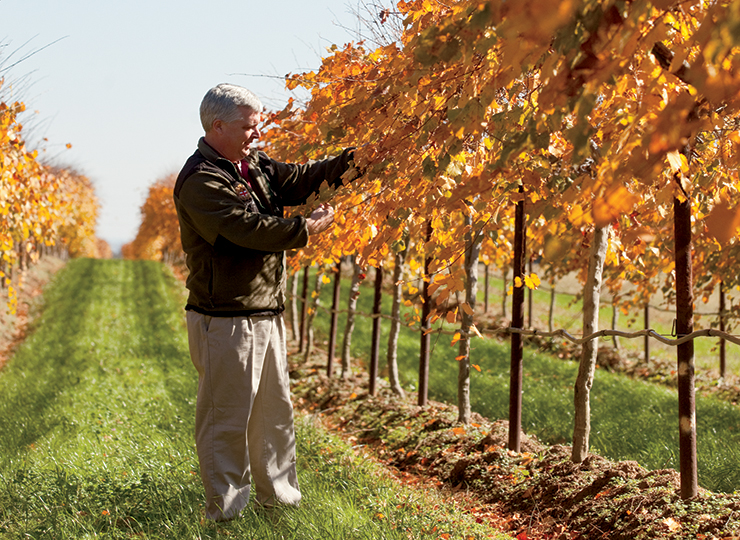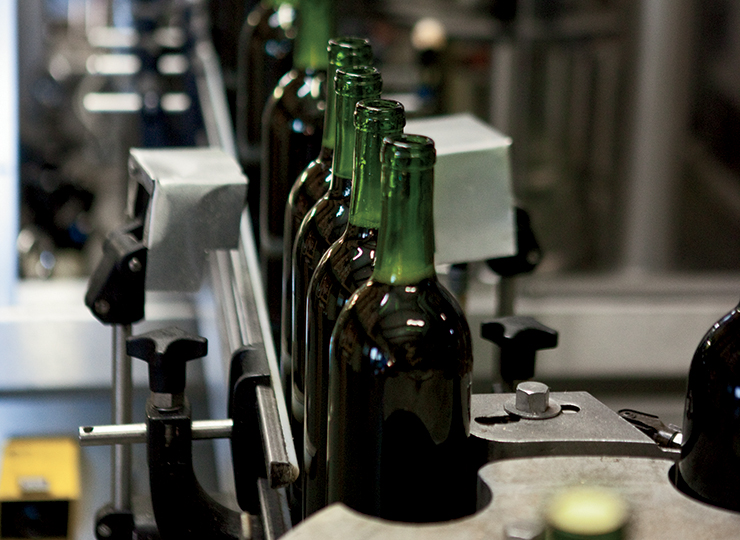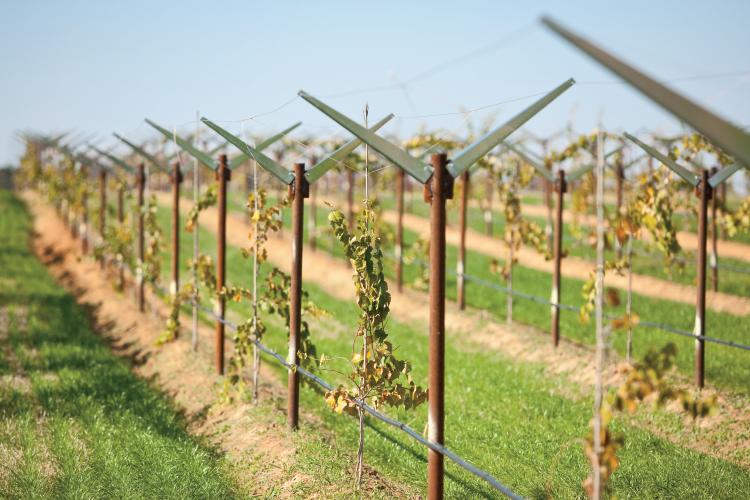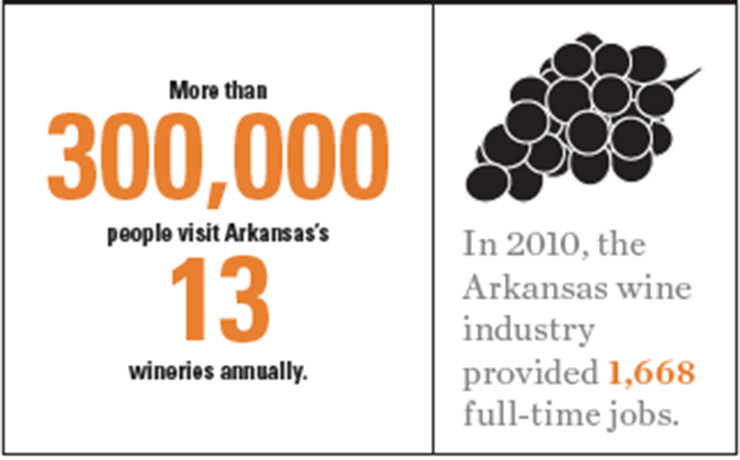Home > Arkansas > Arkansas Agritourism > Grape Expectations: Arkansas Wine Industry Encourages Agritourism
Grape Expectations: Arkansas Wine Industry Encourages Agritourism

Winemaking has been part of the culture of Arkansas for nearly 140 years, but the growing interest in agritourism has illustrated the important role the industry plays in the economy – now and in the future.
The Arkansas grape, wine and related industries generated $173 million for the state, based on 2010 figures, with $21 million of that figure attributed to tourism, according to a study commissioned by Arkansas Tech University-Ozark Campus and funded by the Arkansas Agriculture Department. More than 300,000 people visit Arkansas’s 13 wineries annually, according to the study. Those tourists spend dollars on wine purchases, lodging, shopping, dining and more.
“Some Arkansans may not realize the positive effect grapes and wine have on our state,” says Dr. Ken Warden, chief business and community outreach officer for Arkansas Tech-Ozark. “This study is a testament to the value the industry has to our state and provides evidence for anyone looking to invest in the process.”

Tasting Tourism
The opportunity for investment is plentiful. Arkansas ranks 21st in the country in total wine production, yet the retail value of Arkansas wine sold is estimated at $20.3 million, with sales generated by the wineries totaling $11.4 million.
Tourism and the success of wineries are closely linked.
“Ninety-nine percent of the wineries in the country sell the bulk of their product at their wineries,” says Joseph Post, a member of the sixth-generation operating Post Familie Vineyards, one of the state’s oldest, largest and most successful wineries. Producing the best-selling wines in Arkansas, Post Familie now relies primarily on regional and national distribution, but the 50,000 annual visitors to the Altus winery remain important guests.
“Our visitors are vital to our business,” Post says. “That’s the way we make our first impression, gain customers and build loyalty.”

Fine Vines
For Post, wine is an agricultural endeavor, as evidenced by the 200 acres of grapes in production. “We are farmers,” he says. “A lot of good winemakers don’t involve themselves in farming, but for us that’s what works. We think about growing a bottle of wine. That’s in our fabric.”
Arkansas, particularly in the Altus region, is ideal for growing grapes, Post says. “There’s a lot to be said for the right kind of soil,” he says. “Grapes don’t like wet feet. Grapes need well-drained soil, frost protection and micro-climates, and that’s what we have here.”
Doug Hausler, who owns Keels Creek Winery, also finds the soil good for growing grapes. A former research chemist for Phillips Petroleum, he and his wife chose Eureka Springs for their retirement and planted a 1-acre vineyard as a hobby.
“It didn’t seem to be that difficult, so we subsequently planted 5,000 vines on eight acres,” Hausler says. “Then we had to figure out what to do with all those grapes.”
Keels Creek, a boutique winery, produces 3,000 to 4,000 gallons of wine annually.

“We’re a mom-and-pop organization,” he says. “We distribute our time between retail space, winery and vineyard. We keep our vineyard small, but we keep our hand in it.”
Keels Creek relies on visitors to sell its wines.
“One of the biggest pulls for a winery is to get people to come into your door,” Hausler says. “If you are small like us, you need to sell your wine on site.”
That means the wines have to be good, and Hausler says some visitors are surprised at the quality of wines being grown in Arkansas.
“If people are willing to experiment and try wines other than Chardonnay, Merlot and Pinot Noir, they will find very good wines in various places,” he says. “As people research for their travel, they look for wineries to explore, so we expect to see a continued increase in tourists, which is great thing for us and for Arkansas.”



